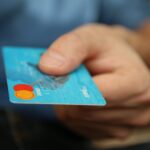Achieving Financial Freedom | Essential Debt-Free Living Tips

Table of Contents
Introduction
In today’s financial landscape, achieving a debt-free life is more than just a dream; it’s a necessary goal for those looking to secure their financial future. With the average American household debt soaring, the importance of living without the burden of debt cannot be overstated. In this comprehensive guide, we dive deep into living devoid of debt shackles, offering valuable insights, strategies, and real-life success stories to inspire and guide you on your journey to financial freedom.
What is Debt-Free Living?
Debt-free living refers to managing your finances to avoid accruing unnecessary debt, granting you the freedom to make life choices without the constraints of financial obligations. This lifestyle is about paying off debts and adopting habits that prevent future debt.
The Advantages of a Debt-Free Lifestyle
Living devoid of debt offers numerous benefits, including:
- Financial Flexibility: Without monthly debt payments, you have more money to save, invest, or spend on experiences and purchases that truly matter to you.
- Stress Reduction: Debt is a significant source of stress for many. Eliminating it can lead to better mental and emotional well-being.
- Improved Credit Score: Paying off debt and managing your finances can boost your credit score, making qualifying for a mortgage or other loans on favorable terms easier.
Challenges and Considerations
While the benefits are clear, living debt-free also presents challenges. It requires discipline, planning, and sometimes, sacrifices in your current lifestyle. Moreover, it’s essential to distinguish between “good debt” and “bad debt.” Investments like mortgages or student loans can be considered good debt if they increase net worth or income over time. In contrast, high-interest consumer debt from credit cards is typically seen as bad debt.
Setting the Foundation for Debt-Free Living
Understanding and Assessing Your Debt
The first step toward living debt-free is understanding the total amount of debt you owe and the interest rates associated with each debt. This understanding lets you prioritize which debts to pay off first based on factors like interest rates and emotional impact.
Defining Your Debt-Free Goals
What does being debt-free mean to you? Is it having no credit card debt, mortgage-free, or something else? Setting clear, realistic goals is crucial for your journey. Remember, the path to debt-free is personal, and what works for one person may not work for another.
Strategies for Achieving and Maintaining a Debt-Free Life

Effective Budgeting Techniques
Budgeting is the cornerstone of financial wellness. Various methods can help you control your spending and save money, including:
- 50/30/20 Budgeting: Allocate 50% of your income to necessities, 30% to wants, and 20% to savings and debt repayment.
- Zero-Based Budgeting: Every dollar of your income is assigned a purpose, ensuring you know exactly where your money goes each month.
- The Envelope System: This cash-based budgeting method involves dividing cash into envelopes for different spending categories, preventing overspending.
Choosing the Right Debt Payoff Method
Several strategies can help you tackle your debt, including:
- Debt Snowball: Pay off debts from smallest to largest, gaining momentum as each balance is wiped out.
- Debt Avalanche: Focus on paying off debts with the highest interest rates first, saving money on interest over time.
- Debt Consolidation: Combine multiple debts into a single debt with a lower interest rate, making payments more manageable.
Building and Using an Emergency Fund
An emergency fund is essential for preventing new debt. Start by saving $1,000, then work up to 3-6 months’ living expenses. This fund is a buffer against unexpected costs, reducing the need to rely on credit cards in emergencies.
Debt-Free Living Tips: Extra Strategies and Insights for a Debt-Free Lifestyle
Increasing Your Income and Managing Expenses
Living below your means is easier said than done, but it’s crucial for freeing yourself from debt. Consider side hustles, freelance work, or selling unused items to increase your income. Simultaneously, adopt a frugal lifestyle by prioritizing needs over wants and seeking discounts and deals.
Managing Emotions and Seeking Professional Help
Debt can be as much an emotional burden as a financial one. It’s essential to address feelings of shame or stress related to debt. Financial therapists or advisors can offer guidance and support, helping you develop healthier financial habits.
Establishing a savings account is a safety net and provides peace of mind for living without debt. Individuals can work toward a debt-free future by prioritizing saving and minimizing unnecessary expenses. One crucial step is allocating extra funds toward paying off debts beyond the minimum payment, whether a lingering car loan or other liabilities.
Overcoming Common Challenges
Staying motivated on debt freedom is challenging, especially when progress seems slow. Celebrate small victories, stay focused on your goals, and seek support from online communities or financial advisors.
Living devoid of debt shackles is achievable with disciplined budgeting and consistent monthly payments toward debts. By embracing this approach, individuals can enjoy financial freedom and peace of mind.
Success Stories and Real-Life Examples
Hearing about others who have achieved a life free of debt can be incredibly motivating. Look for blogs, podcasts, and books that share success stories and practical tips. These resources can provide the inspiration and information needed to continue your journey.
Embracing living devoid of debt is a transformative journey that empowers individuals to break free from financial burdens and regain control of their lives. At the heart of living devoid of debt is the philosophy that debt is bad and every effort should be made to get out of debt as quickly as possible.
Conclusion
Achieving a free-of-debt lifestyle is a journey that requires dedication, planning, and the willingness to make tough financial decisions. By setting clear goals, adopting effective budgeting and debt repayment strategies, and seeking support when needed, you can navigate the path to financial freedom. Remember, the peace of mind and financial flexibility of living free of debt are well worth the effort.
In pursuing your free-of-debt goals, remember to leverage tools and resources that can aid your journey. Websites like NerdWallet and The Simple Dollar offer calculators, budgeting tools, and articles to help you make informed financial decisions.




What’s Taking place i’m new to this, I stumbled upon this I
have found It absolutely useful and it has aided me out loads.
I hope to contribute & assist different customers like its
aided me. Good job.
Heya i am for the primary time here. I came across
this board and I in finding It truly helpful & it helped me out a
lot. I’m hoping to present one thing again and aid others such as you helped me.
[…] Unlike credit cards, using a debit card for purchases won’t charge interest. However, failing to pay your payment card bill can accumulate credit card debt, increase the interest paid, and lower your credit score. Managing your credit is essential to avoid these financial pitfalls. This article will discuss the top 10 credit card mistakes to avoid for your financial well-being. […]
You actually make it seem so easy with your presentation but I find this topic to be actually something
which I think I would never understand. It seems too complex and extremely
broad for me. I’m looking forward for your next post, I will try
to get the hang of it!
[…] long-term objectives, such as saving for retirement, funding your children’s education, and managing debt. They can also guide investment strategies, insurance coverage, and tax […]